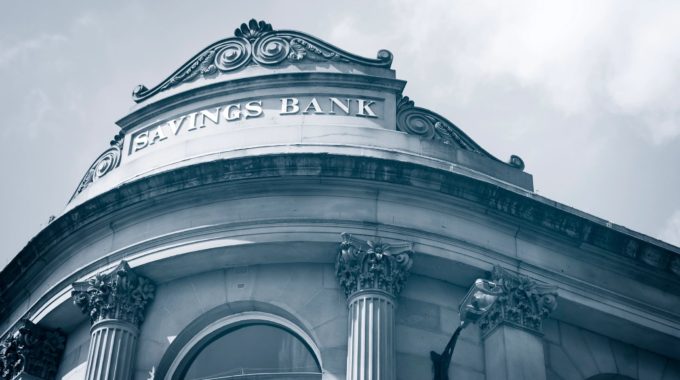Another way to keep equipment costs down is to lease instead of buy. These days,…

Merchant Cash Advance
1.
Merchant Cash Advance
A merchant cash advance was originally structured as a lump-sum payment to a business in exchange for an agreed-upon percentage of future credit card and/or debit card sales.[1] The term is now commonly used to describe a variety of small business financing options characterized by short payment terms (generally under 24 months) and small regular payments (typically paid each business day) as opposed to the larger monthly payments and longer payment terms associated with traditional bank loans. The term “merchant cash advance” may be used to describe purchases of future credit card sales receivables or short-term business loans.[2]
Merchant cash advance companies provide funds to businesses in exchange for a percentage of the businesses daily credit card income, directly from the processor that clears and settles the credit card payment. A company’s remittances are drawn from customers’ debit and credit-card purchases on a daily basis until the obligation has been met. Most providers form partnerships with payment processors and then take a fixed or variable percentage of a merchant’s future credit card sales.[3]
These merchant cash advances are not loans—rather, they are a sale of a portion of future credit and/or debit card sales. Therefore, merchant cash advance companies claim that they are not bound by state usury laws that limit lenders from charging high-interest rates.[4] This technicality allows them to operate in a largely unregulated market and charge much higher interest rates than banks.[5]
This structure has some advantages over the structure of a conventional loan. Most importantly, payments to the merchant cash advance company fluctuate directly with the merchant’s sales volumes, giving the merchant greater flexibility with which to manage their cash flow, particularly during a slow season. Advances are processed quicker than a typical loan, giving borrowers quicker access to capital. Also, because MCA providers like typically give more weight to the underlying performance of a business than the owner’s personal credit scores, merchant cash advances offer an alternative to businesses who may not qualify for a conventional loan. An example transaction is as follows: A business sells $25,000 of a portion of its future credit card sales for an immediate $20,000 lump sum payment from a finance company. The finance company then collects its portion (generally 10-25%) from every credit card and/or debit card sale until the entire $25,000 is collected.[6]
Rather than using traditional APR to calculate the rate of a merchant cash advance, the funding provider gives the business a factor rate on the loan. To calculate the payback rate, the merchant cash advance company multiplies the advance amount paid to the business by the factor rate.[citation needed]
Merchant cash advances are most often used by retail businesses that do not qualify for regular bank loans and are generally more expensive than bank loans.[7] Competition and innovation led to downward pressure on rates and terms are now more closely correlated with an applicant’s FICO score.[8]
There are generally three different repayment methods:[citation needed]
-
Split withholding: When the credit card processing company automatically splits the credit card sales between the business and the finance company per the agreed portion (generally 10% to 22%). This is generally the most common and preferred method of collecting funds for both the clients and finance companies since it is seamless.
-
Lock box or trust bank account withholding: All of the business’s credit card sales are deposited into a bank account controlled by the finance company and then the agreed upon portion is forwarded onto the business via ACH, EFT or wire. This is the least preferred method since it results in a one-day delay in the business receiving the proceeds of their credit card sales.
-
ACH withholding: When structured as a sale, the finance company receives the credit card processing information and deducts its portion directly from the business’s checking account via ACH. When structured as a loan, the finance company debits a fixed amount daily regardless of business sales.
-
Tozzi, John (9 Jan 2009). “How Merchant Cash Advances Work”. BusinessWeek. Retrieved 11 July 2011.
-
Jump up ^ Murray, Sean (5 Mar 2012). “Merchant Cash Advance Redefined”. Retrieved 6 Feb 2012.
-
Jump up ^ Loten, Angus (18 Aug 2011). “The Lure of Cash Advances”. Wall Street Journal. Retrieved 18 Aug 2011.
-
Jump up ^ Farrell, Maureen (31 Jan 2008). “Look Who’s Making Coin Off The Credit Crisis”. Forbes.com. Retrieved 11 July 2011.
-
Jump up ^ Elizabeth S. Bennett and Nitasha Tiku. “Thanks, But No Thanks”. Inc. Retrieved 4 December 2012.
-
Jump up ^ Goodman, Michelle (11 Jun 2012). “Case Study: How A Merchant Cash Advance Worked in a Pinch”. Entrepreneur.com. Retrieved 21 May 2013.
-
Jump up ^ John Tozzi (9 January 2009). “How Merchant Cash Advances Work”. Bloomberg. Retrieved 8 November 2016.
-
Jump up ^ Sean Murray (19 Sep 2012). “The End of an Era”. Retrieved 6 Feb 2012.
-
Jump up ^ Sean Murray. “You Can’t Ask How Big it is Without Defining What it is”. DailyFunder. Retrieved 28 Jan 2014.
-
Jump up ^ John Tucker (January 10, 2016). “Merchant Cash Advance Predictions for 2016”. deBanked.



